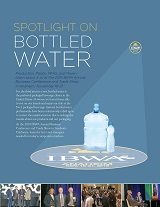People need to drink more water. The consumption of water, whether from the bottle or the tap, is a good thing, but banning or restricting access to bottled water on a college campus, while keeping available less healthy sodas and sports drinks, would prevent people from choosing the healthiest packaged beverage on the shelf.
The unintended consequences from a bottled water sales ban at the University of Vermont (UVM) reinforce this fact. Research conducted by UVM professor of nutrition Rachel K. Johnson, PhD, MPH, and her co-author, made clear that UVM’s decision to remove bottled water drove students, faculty, staff, and visitors to purchase more unhealthy sugary drinks. At the same time, the number of plastic beverage containers on campus actually increased. This happened even though the university provided free reusable water bottles at campus events, retrofitted 68 water fountains to allow for the refilling of reusable water bottles, and conducted an educational campaign to inform students about the effort.
“The Unintended Consequences of Changes in Beverage Options and the Removal of Bottled Water on a University Campus,” published July 2015 in the American Journal of Public Health, concluded that the UVM bottled water sales ban resulted in a 33% increase in the number of unhealthy sugary drinks shipped and a 6% increase in the number of bottles shipped to campus and thus entering the waste stream. The data collected showed that on-campus shipments of unhealthy, sugary drinks increased significantly when the option of bottled water was removed, while shipments of healthy beverages declined significantly. At the same time, the overall number of plastic bottles shipped to campus was not reduced.
The UVM study shows that these sorts of actions, regardless of the motivation, may result in the consumption of more calories and more added sugars, a perpetuation of unhealthy dietary choices, and — ironically — an increase in plastic waste. Dr. Johnson’s research clearly suggests that banning bottled water sales on campus has the potential to undermine efforts to encourage healthy food and beverage choices and may be environmentally counterproductive.



























